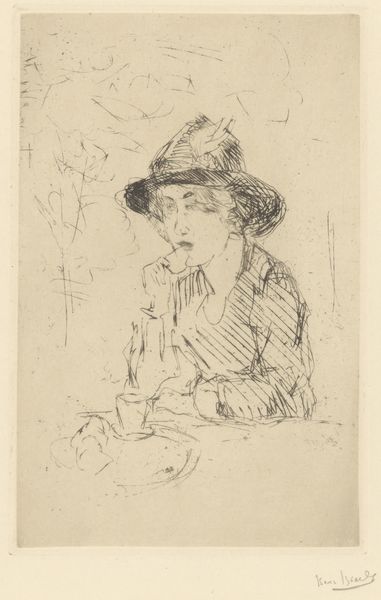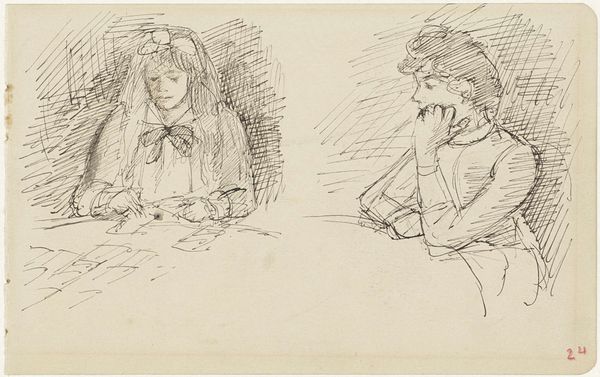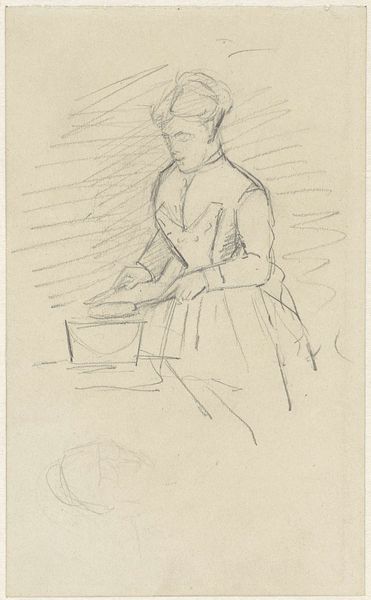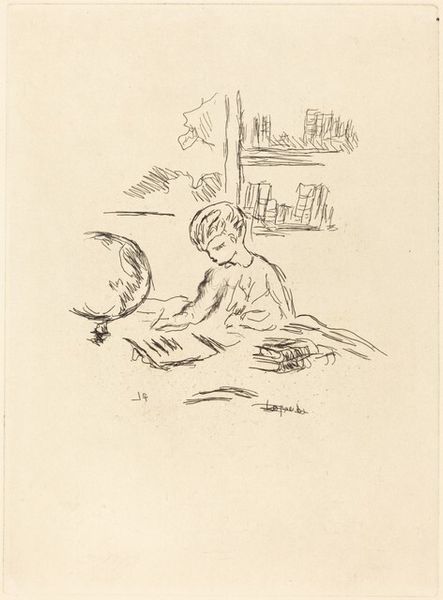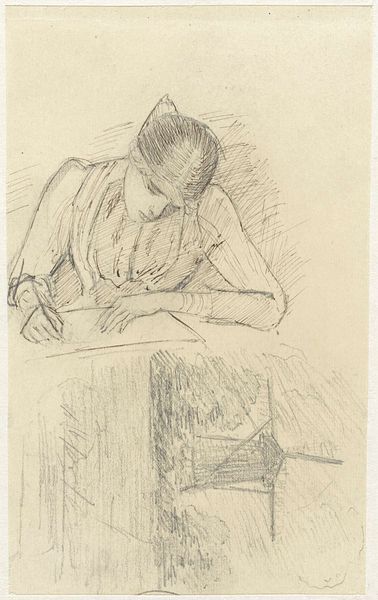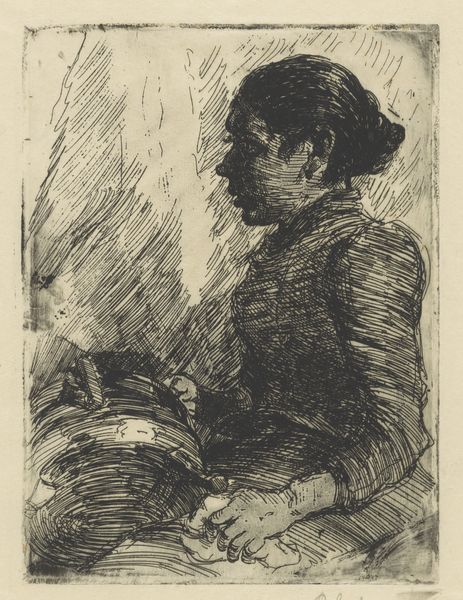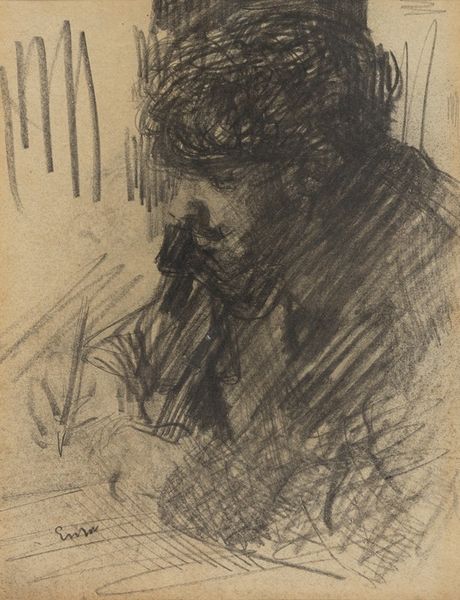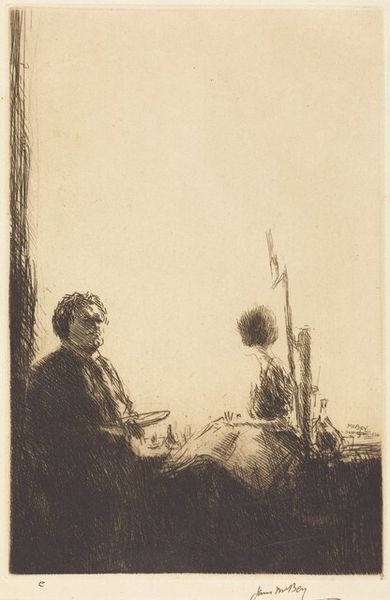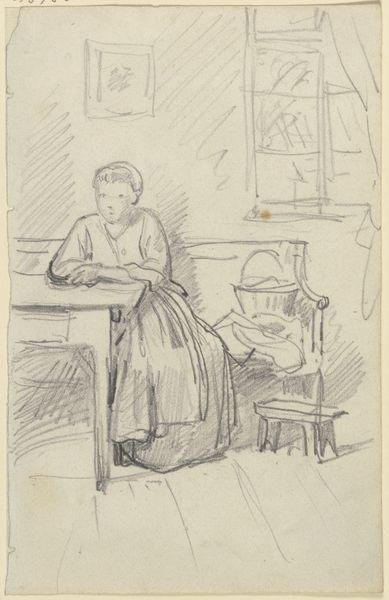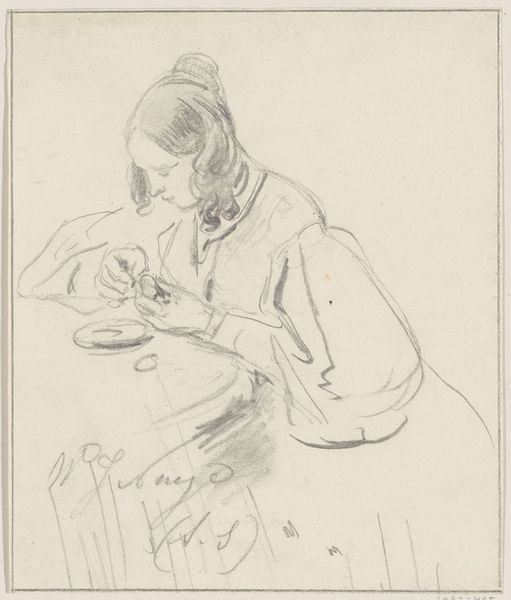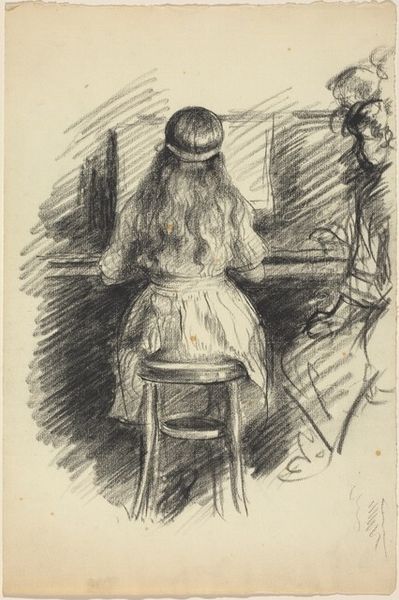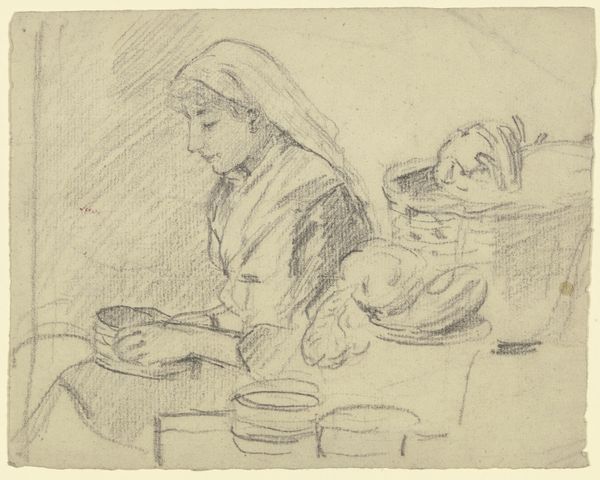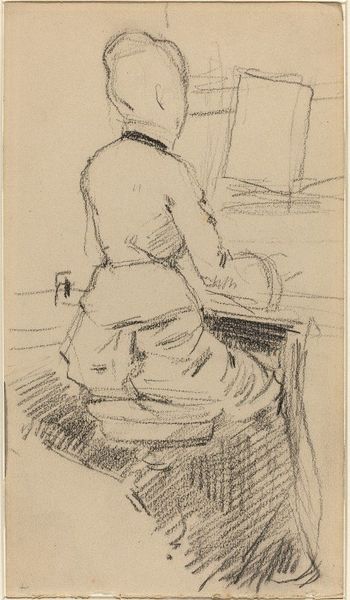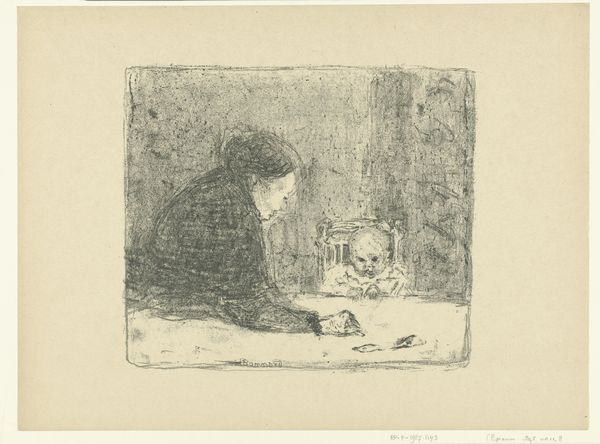
drawing, ink
#
portrait
#
drawing
#
ink drawing
#
pen sketch
#
german-expressionism
#
figuration
#
ink
#
expressionism
#
portrait drawing
Copyright: Public Domain: Artvee
Editor: Here we have Lovis Corinth's "Wife of the Artist" created in 1918, using ink. It feels like a very intimate and casual sketch. What strikes you about this work? Curator: The context surrounding this piece, created near the end of World War I, immediately jumps out. German Expressionism, to which Corinth belonged, was grappling with anxieties surrounding modernity and social upheaval. The loose, almost frantic linework speaks to a certain psychological tension prevalent in the era. Does that read for you too? Editor: I definitely see the tension you describe. It's in the frantic lines. It's also interesting how a domestic scene can reflect those anxieties. I guess the personal is always political, right? Curator: Precisely. Consider the role of the artist's wife within the social structure of the time. She is confined to the domestic sphere, but even in that supposedly safe space, the anxieties of the war permeate. The unfinished quality, the almost claustrophobic composition – they hint at a deeper unease beyond just a simple portrait. Is there a feeling of unsettledness to it, despite the everyday quality? Editor: Yes, definitely! Now that you mention it, the claustrophobia is really emphasized by the limited view, and the dark shading underneath the table. It’s almost oppressive, but still interesting to observe. Curator: It invites us to contemplate not only the personal relationship between artist and muse, but also how external socio-political forces shape even the most intimate spaces and relationships. What's your biggest takeaway here? Editor: Seeing how the art can reflect specific anxieties from that moment in time made it come alive in a new way. Curator: I concur. It makes the image relevant and engaging, connecting its history with our present experience.
Comments
No comments
Be the first to comment and join the conversation on the ultimate creative platform.
